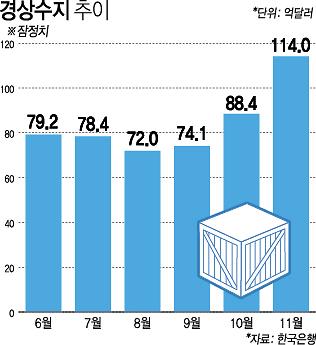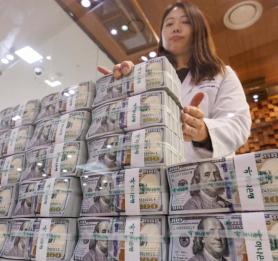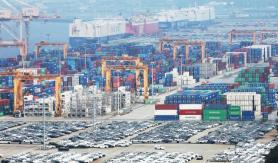
South Korea posted a current account surplus for the 34th consecutive month in December last year, but the surplus slipped from a record high set in the previous month, the central bank announced Monday.
The surplus reached US$7.22 billion in December, down 9.5 percent from a revised $11.32 billion in November, according to preliminary data compiled by the Bank of Korea (BOK).
BOK officials said the monthly surplus narrowed partly because the goods account surplus fell to $8.52 billion from $10.03 billion over the cited period.
According to the announcement,
- The services account deficit widened to $1.54 billion in December from $0.16 billion a month earlier due to the worsening of the transport and travel accounts.
- The primary income account surplus narrowed to $1.18 billion from $1.67 billion due to an increase in payments on the equity account.
― The secondary income account logged a deficit of $0.94 billion.
The central bank also said the country's financial account recorded a net outflow of $9.80 billion in December, similar to the level in the previous month. (For the year as a whole, the financial account recorded a net outflow of $90.38 billion in 2014.)
- Direct investment recorded a net outflow of $1.35 billion, less than the $2.10 billion in the previous month, as foreigners’ direct inward investment increased.
- Portfolio investment recorded a net outflow of $6.16 billion, sharply higher than the $2.84 billion in November, due to the shift to a net outflow of foreign investors’ securities investment.
- Financial derivatives posted a net outflow of $0.15 billion.
- Other investment recorded a net outflow of $5.13 billion, down from $7.80 billion a month earlier mostly owing to decreased foreign deposits by domestic financial institutions.
- Reserve assets decreased by $2.99 billion.
Copyright ⓒ Aju Press All rights reserved.



